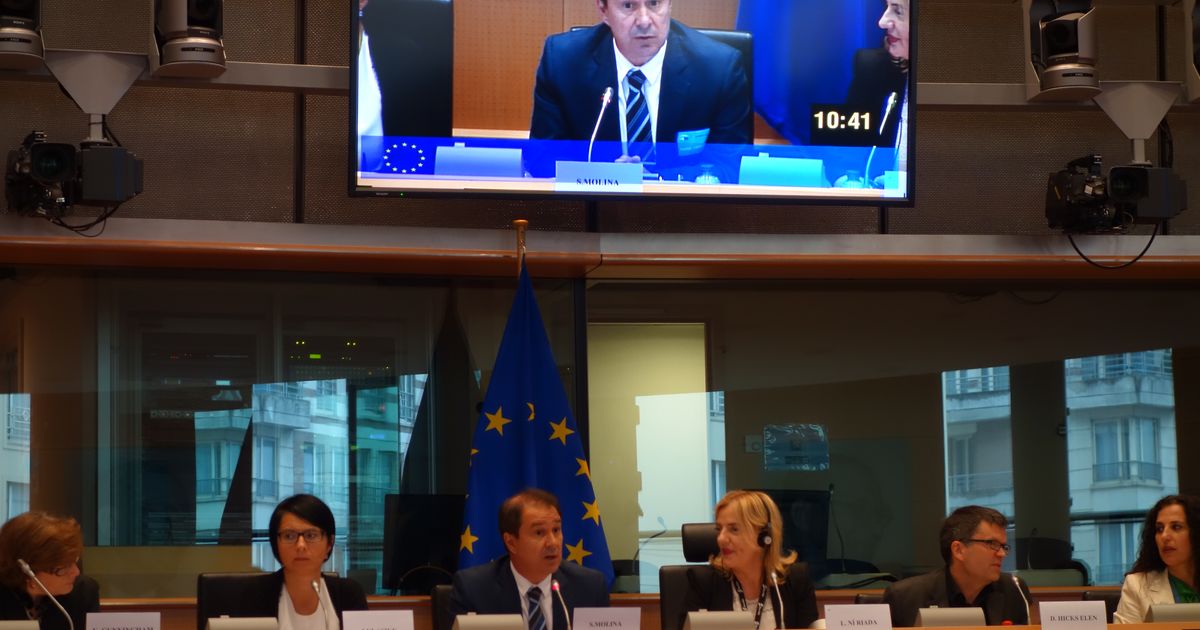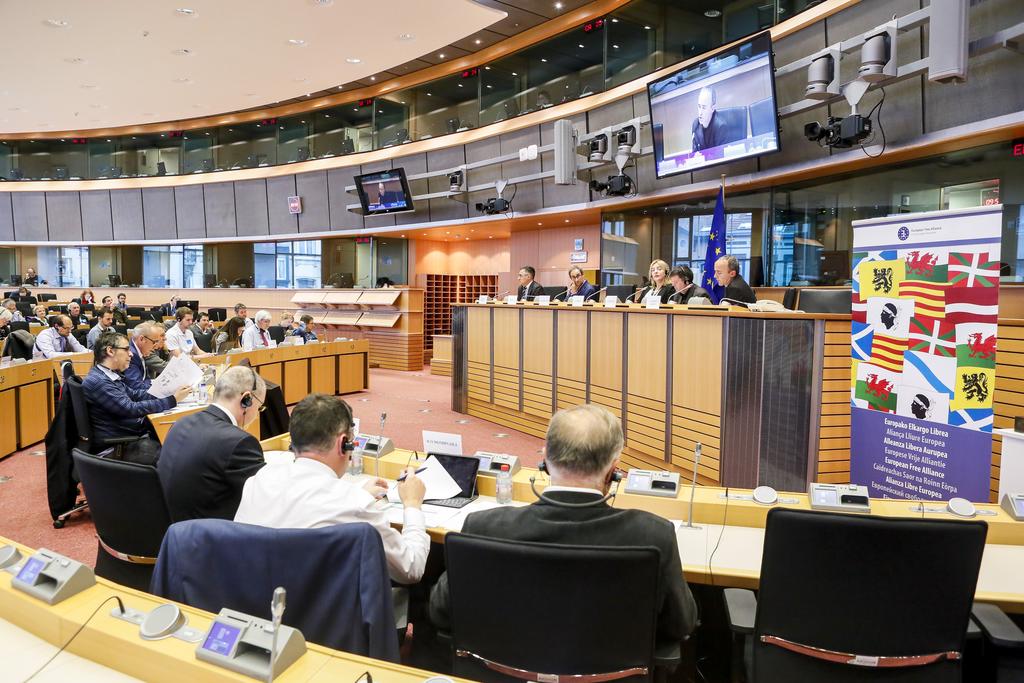
Hearing on Linguistic Diversity and Language Discrimination
03.06.2016FUEN participated in the hearing that took place in the European Parliament on 1 June 2016, organised by ELEN (European Language Equality Network) and hosted and chaired by Liadh Ní Riada MEP.
A study undertaken in 2015 showed widespread discrimination against linguistic rights and that some EU member states did little to protect their own citizens from intimidation, humiliation and violence. Irish MEP Liadh Ní Riada: “The EU has an important part to play in upholding the rights of all languages within in, and to ensure that all language speakers are treated equally within its framework – regardless of tongue.”
The hearing showcased several cases of language discrimination from Brittany, Catalonia, Valencia, Ireland, Wales, Scotland, the Basque Country, Slovakia, Romania and Occitania. The question was posed how, when EU member states have signed up the principle of “respecting linguistic diversity” (laid down in the Treaties), how discrimination on the grounds of language can be prevented. Conchúr Ó Giollagáin (Soillse, University of the Highlands and Islands, Scotland) stated that “The denial of language rights is in direct contravention of declared obligations and the denial in such a way is also a denial of human rights. Why else would these cultures be on the brink of collapse even with legislative support bestowed on them?”
Ferran Suay, ELEN Vice President, stated that “saying that some languages are better than others is exactly the same as saying that some humans are superior to others: pure and simple racism”.
A discussion with representatives of the OSCE High Commissioner on National Minorities (HCNM), the Office of the UN High Commissioner on Human Rights (OHCHR), the European Charter for Regional or Minority Language of the Council of Europe (ECRML) and the European Commission (EC) focused on the existing instruments and how to best use them to prevent linguistic discrimination and respect linguistic diversity.
Ms Iryna Ulasiuk (HCNM) stressed the need for positive incentives rather than sanctions in regard to linguistic rights and pointed to the recommendations of the High Commissioner, in particular the Oslo Recommendations regarding the Linguistic Rights of National Minorities. Ms Belen Rodriguez de Alba from the United Nations explained that both the UN Declaration on Minorities and the minority Article (Article 27) in the International Covenant on Civil and Political Rights are based on individual rights. The difficulty lies with the implementation of these international standards.
That the implementation of international norms is a huge challenge, was confirmed by Sixto Mollina from the Council of Europe. He expressed the wish that more than just 25 (out of 47; 17 EU member states) European countries will ratify the European Charter for Regional or Minority Languages. “If states do that and comply with the existing instruments, we will be at a totally different level”, said Mollina. Kristina Cunningham from the European Commission informed the audience that it is now much more difficult to propose new legislation, and that discrimination is not one of the priorities. She pointed to the new funding programmes that can be used to create awareness and influence. Furthermore she reiterated the position of the European Commission that the Treaties give the EU the competence to legislate against discrimination based on sex, racial or ethnic origin, religion or belief, age or sexual orientation – but not language.
According to Rob Dunbar (University of Edinburgh), the protection for minority language speakers has regressed in the last twenty years: “Language rights are a relative latecomer to the international human rights party. There were more developed provisions with minorities during the 1990s but in recent years, there’s been a slowdown in standard-setting.” Social and economic conditions are also critical. “We need an effective participation and empowering linguistic communities to take decisions – not only about the language but also the social and economic conditions that people live in.”
More information:
European Language Equality Network
Video recording and agenda of the hearing

Basın bildirileri
- Polonya parlamentosundaki yeni sekreterlik, ulusal ve etnik azınlıkları destekliyor
- FUEN, Ladin dilinin 2026 Kış Olimpiyatları’na dahil edilmesini talep ediyor
- FUEN, BM Özel Raportörünü Uyumlu Bir AB Azınlık Koruma Çerçevesini Savunmaya Çağırdı
- FUEN wishes you a peaceful Christmas season, restful days and a bright, hopeful start to the new year!
- FUEN calls on the EU to act over systematic ethnic-based land confiscations in Slovakia
- Budapeşte'de gerçekleştirilen Azınlık Kadınları Konferansı'nda Ulusal Azınlık Saflarından Oluşan Kadınlara Mahsus Politikaya Eşit Katılım Hakkı Çağrısı Yapıldı.
- FUEN Başkanı Olivia Schubert Cenevre'deki BM-Azınlık Sorunları Forumu'nda
- Slav Azınlığı'nın 28. Semineri ''Barış Labaratuvarı'' Avrupa Kültür Başkenti Gorizia'da Gerçekleşti
- Equality in Political Participation and Representation: Third “Women of Minorities” Conference to Be Held in Budapest
- FUEN Çalışma Topluluğu Avrupa'daki Azınlık Dersleriyle Karşılaşılan Sorunları ve Geleceğe Matuf Görüşleri Müzakere Ediyor














